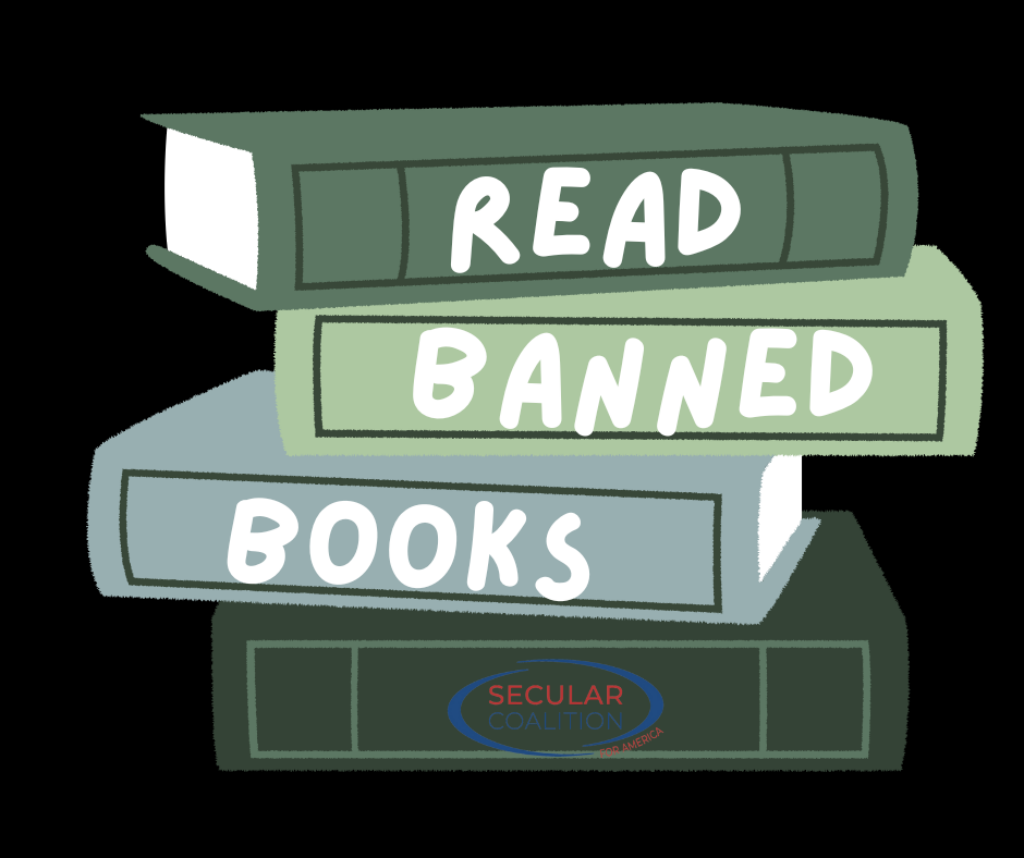One of the spaces with the most debate surrounding the First Amendment is schools. From Engle v. Vitale, who found that a mandatory nondenominational school prayer was unconstitutional, to recent debates surrounding education vouchers, this has always been a highly contested issue in American politics.
Over the past few years, there has been a sharp increase in the number of books being banned. There is pressure from some religious organizations to increase parental influence on curriculum. In the 2023-24 school year alone, there were over 10,000 instances of book bans. More than half of the targeted books contain themes relating to race, gender, or sexuality.
Book banning is not new to the United States. During the 1950s, there was a movement to ban books that were perceived as promoting communism. In the 1980s, LGBTQ+ themes were challenged. However, there is a key difference between those past movements and the current one: previous bans were often driven by grassroots efforts, while today’s movement is largely driven by government entities, including school boards and state legislatures. This shift has made book bans an easy way for politicians to appeal to religious voters.
Some of the most widely banned books include:
- The Handmaid’s Tale by Margret Atwood
- Beloved by Tony Morrison
- The Perks of Being a Wallflower by Steven Chbosky
- The Diary of a Young Girl by Anne Frank
- Brave New World by Aldous Huxley
I have read all of these books. Four of the five were assigned reading for school. These are not books that should be restricted; in fact, they offer valuable insights that should be encouraged in educational settings. The Perks of Being a Wallflower explores the experience of questioning one’s sexuality and understanding LGBTQ+ identity. The Diary of a Young Girl provides a firsthand account of the Holocaust. Beloved portrays the lived reality of Black Americans in the 19th century. The Handmaid’s Tale and Brave New World warn against the dangers of government overreach and authoritarianism.
All of these books have something in common: they encourage readers to engage with perspectives that may be different from their own. The current wave of book bans primarily targets works that challenge social norms and encourage critical thinking. Many advocates for bans, including religious organizations, argue that these books promote “controversial” ideas, but in reality, they fear that exposure to diverse experiences fosters empathy and social change.
Since taking office in January, President Donald Trump’s administration has taken significant steps to curtail diversity, equity, and inclusion (DEI) initiatives, framing them as divisive and unnecessary. He has signed executive orders that restrict DEI programs in federal agencies and influenced policies that limit discussions on race, gender, and sexuality in schools. The push to ban books aligns with these broader policies. Rather than engaging with diverse perspectives, current policies seek to limit exposure to them, reinforcing a singular ideological viewpoint in schools.
Meanwhile, the same groups pushing for book bans want to increase the presence of the Bible in public schools. Louisiana public schools mandated that the Ten Commandments had to be hung in every classroom. Oklahoma schools are trying to have a copy of the Bible in every classroom. These groups are also looking for an elementary school Bible curriculum to add to public schools. Proponents argue that these measures promote historical literacy and moral education. However, no similar efforts have been made to include texts from other religious traditions. This raises concerns about First Amendment violations and the endorsement of Christianity in public schools.
Education should foster critical thinking, not restrict it. Silencing the experiences of marginalized groups prevents students from gaining a full understanding of the world around them. For some children, these books can help validate their experiences. For others, they can help them understand experiences different from their own. In contrast, the addition of the Bible pushes students towards Christianity, promoting one way of thinking rather than those essential critical thinking skills.
Throughout history, book bannings have had one goal, to suppress knowledge in order to gain power. By taking away books that they don’t agree with and pushing a book that they do, religious groups and politicians are trying to gain power over America’s youth. Throughout my time in school, I loved to read. I still do. I believe that students should be encouraged to engage with challenging ideas—not shielded from them. The books that some want to ban shaped my ability to think critically, question the world around me, and advocate for others. Denying students access to these perspectives does them a profound disservice. And having the government at the forefront of it brings serious concerns about first amendment rights of students.



